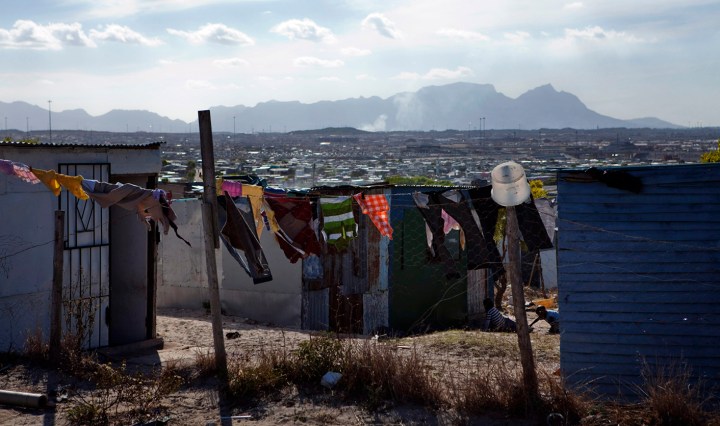South Africa
Letter to the Editor: Suzette Little

Ivo Vegter recently noted that it’s his right to change voting strategies, as long as there’s a good reason (and a good column in it). The most recent change in his political allegiances came about as a result of the DA’s stance on the Cape’s homeless. This is the response by SUZETTE LITTLE, Mayoral Committee Member in Cape Town.
Dear Editor,
There has been a lot of debate recently about people in our city who live on the streets. My colleagues and I are working tirelessly to find the best solution we can to an ever-present and often heart-breaking challenge.
Homelessness is not unique to Cape Town – it is a worldwide phenomenon that is more prominent in some places than others, largely due to economic circumstances. People migrate to the streets for a number of reasons including unemployment, domestic problems and substance abuse.
As with any other city, Cape Town is caught in the unenviable position of balancing the rights of street people with those of other communities.
As the only municipality with a specific Street People Policy, this administration remains committed to creating a caring city, as far as we are able, for as many as we are able.
Many of the points being debated with abandon in the media in recent weeks would become moot if people simply took the time to read this policy. It is a reasonably short document and sums up the City’s response to this very complicated social issue.
The policy is very clear in terms of this administration’s responsibility towards street people. It spells out what we have committed to, including compiling a database of street people, referring those who want help to the relevant shelters, and assessment centres, and even creating job opportunities via the Expanded Public Works Programme. Between December 2013 and June 2014, the City will have provided job opportunities to 639 street people on its database.
In addition, the City runs a number of programmes in communities most at risk to prevent more people from migrating to the streets. These programmes are focused on addressing issues in the home, truancy and substance abuse and to provide support to street people who are reintegrated into their communities to prevent them from returning to their former life.
However, voter education and the provision of identity documents expressly for the purposes of voting as referred to in the article ‘Too dirty for DA but they need our votes’ (Sunday Weekend Argus, 20 April 2014, p.6) is not the City’s mandate.
The other common refrain is the ‘harassment’ of street people by the law enforcement agencies. These agencies are responsible for ensuring compliance with the provisions of the various by-laws that apply to each and every person in this city. The City Streets, Public Places and Prevention of Noise Nuisance By-law makes anti-social behaviour, drinking, urinating, defecating and sleeping in public places, noise nuisance, fires and aggressive begging an offence. The reality is that many of the street people who refuse the City’s offers of assistance contravene this by-law on a daily basis.
The truth is that while there are many heart-breaking reasons why people end up on the street, there is help available to those who want it, but this is an entirely voluntary process. The City cannot force anyone to take up its offers of assistance. All that we can do is expand the services already available and ensure that we are geared to provide a comprehensive response to those who do seek assistance, in line with the principles outlined in the Integrated Development Plan.
This comprehensive response is a shared responsibility – the City has a responsibility to ensure that it is equipped to meet the needs of street people and street people have a choice to consider the alternatives we provide and a responsibility to live within the confines of the law.
With a deeply concerning and complex challenge like this, it becomes difficult if the City doesn’t receive support from the public. This issue is everyone’s responsibility and because this is a caring city, we want to take suggestions into consideration to ensure that we treat street people with dignity, but we do it to get them out of their situation. We also ask that the broader community give responsibly by making donations in cash and kind to registered organisations working with street people instead of fuelling the culture of aggressive begging and hand-outs that we see at many of our intersections on a daily basis.
Councillor Suzette Little
Mayoral Committee Member: Social Development and Early Childhood Development, City of Cape Town
Photo: A general view of squatter shacks in Cape Town’s Khayelitsha township February 17, 2010. REUTERS/Finbarr O’Reilly

















 Become an Insider
Become an Insider